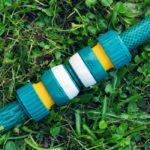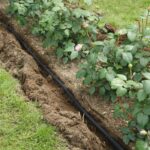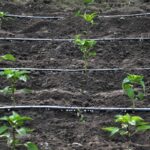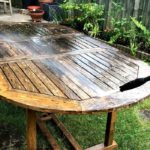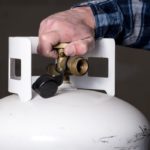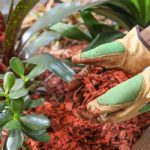Imagine going about your daily yard work, watering your plants with the hose, and whistling the tune to your favorite song. Suddenly, the hose bursts, spraying water everywhere and leaving you shocked and confused. What just happened? It certainly didn’t look like anything was wrong with your garden hose before you started using it. So why do hoses sometimes burst out of nowhere?
Hoses may burst due to external damage, high water pressure, or degradation from being stored outdoors or in high heat for long periods of time. You can prevent your hose from bursting by storing it properly, and by inspecting the hose for damage before use (especially if it’s been awhile).
It’s easy to assume that nothing can go wrong with your garden hose, but as is the case with all lawn care equipment, the hose is susceptible to issues. One such issue is a sudden burst. While you can employ several maintenance tips to protect your hose, you can also get a burst-proof garden hose. Let’s take a closer look at why hoses burst and why you might consider a burst-proof hose as an alternative.
What Causes a Garden Hose to Burst?
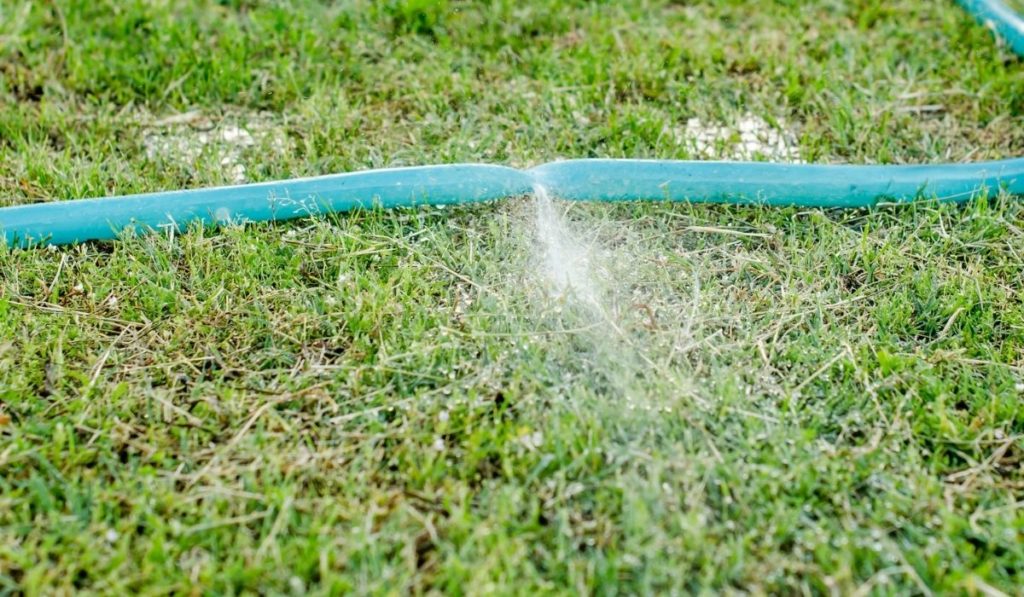
As we’ve already established, garden hoses do burst. In fact, it might be a common occurrence for some homeowners. And to prevent a hose from bursting, you need to know what causes it in the first place.
Most times, a burst is due to wear and tear or a clog in the hose that stops water from going through the pipe as usual. But there are other reasons why this can happen, and we’ll explain some of them below.
Before we proceed, you need to understand that garden hoses, just like any other tool, have a shelf life. Your maintenance practices will determine how long they last or not.
Here are some of the reasons why your garden hose might suddenly burst:
External Damage
Since your garden hose is almost always exposed to other outdoor equipment, it can suffer from external damages like cuts or cracks after coming in contact with any of those tools. For instance, a lawnmower blade or a handsaw could inflict some external damage to a garden hose.
Likewise, extremely low temperatures can dry your garden hose, allowing cracks to occur. When this happens, it’s only a matter of time before the hose pops.
Improper Storage
If you want to enjoy your garden hose for a long time, you need to store it properly. After every use, you should reel in your hose to protect it from bursts and pops.
High Water Pressure
High water pressure is another reason why your hose could burst. Some faucets pump water at a pressure level that the hose can’t handle.
Hoses usually come with a burst pressure rating, which is the maximum pressure they can handle before there’s a risk of bursting. Burst pressure is dependent on the size and construction of the garden hose, which means not all hoses are built to handle high pressure.
Most garden hoses have a burst pressure rating of 250 psi and above, although a few have a lower rating. If you want a garden hose that can handle high pressure, you should look for one with a 250 psi burst rating.
Even if the pressure-limiter installed on your house’s plumbing line fails, there’s no reason to think the municipal supply is higher than, say, 150 psi. This means a hose rated for 250 psi should not be in any condition to burst unless you are intentionally running a pump or otherwise generating that high pressure on site.
Kinks on the Hose
Kinks occur when a hose gets twisted up, usually because it isn’t laid out properly. A kink will prevent water from passing through the hose, leading to a pressure build-up. The hose ruptures when the pressure becomes too high.
Similarly, twisting your garden hose instead of bending it the proper way during installation is another reason why your hose might have a rupture. If your hose is turned the wrong way during installation, there’s a high chance that you’ll be facing a garden hose issue later on.
Poorly Made Garden Hoses
Sometimes, garden hoses don’t burst because of something you did or didn’t do. It could be the manufacturer’s fault for producing a low-quality hose.
That’s why you have to ensure you’re purchasing a high-grade garden hose. Reading reviews from past buyers will go a long way in helping you choose a hose that won’t burst when you least expect it to.
Wrong Clamps or Fittings
The size of your hose clamps or fittings can also determine whether your garden hose will rupture at some point. Many homeowners use old clamps on new hoses, even if they aren’t the right size.
If you use the wrong size clamps on a garden hose, the hose will probably burst. To avoid this, ensure the hose clamps are appropriate for the hose.
Wrong Hose Length
Just like the size of a clamp, the hose length also determines whether it will burst or not. A short hose might have expansion or contraction issues, and excessive stress on it — temperature or pressure — can cause the garden hose to burst.
Poor Repairs
Perhaps you’ve had to fix your hose after a burst in the past. If it ruptures in the same place twice, that’s an indication that it wasn’t well repaired. To prevent issues like this, you may need an expert to fix your hose.
Exposure to Extreme Temperature
Temperature affects your garden hose in different ways. Whether high or low, extreme temperature can cause discoloration, cracking, and hardness. The result of all these is a burst.
How Do You Stop Your Garden Hose From Bursting?
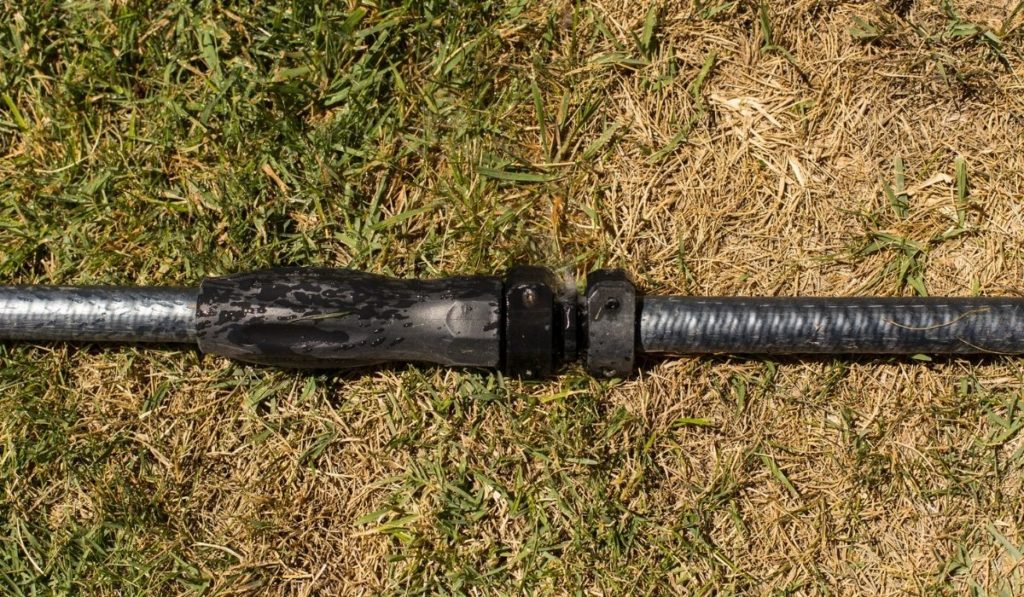
No one wants to deal with a ruptured hose. The cost of repairing or replacing a hose is enough of a headache, let alone the other problems that you might face in the wake of a rupture. Thankfully, you can prevent your garden hose from bursting.
All you need to do is observe some maintenance practices, and you’re good to go!
Inspect Your Garden Hose
We’ve talked about external damage being one of the things that can make your hose go pop. That’s why you should check for tears, cracks, or rips before you declare a garden hose safe for use.
Check Water Pressure
If you don’t want your hose to come apart, you need to ensure that the water pressure isn’t higher than it can handle. Always check the pressure at the water source before connecting your hose. If it turns out that the pressure is too high, adjust it accordingly.
Store Your Hose Properly
Extreme temperatures can affect your hose, so you need to protect it from elements that can make it crack or harden. The best place to properly store your hose is in a box or a cool, dry place.
Other maintenance tips you can follow are:
- Ensure that clamps and other fittings are the right sizes.
- When installing your garden hose, avoid twisting it. Always wrap it the right way.
- Ensure that there are no kinks in the hose. You can do this by laying your hose loosely on the ground.
Generally, all you need to do to prevent your hose from bursting is to avoid the things that cause bursts to occur in the first place. Once you have all that handled, you should be in the clear.
Can You Buy a Burst Proof Garden Hose?
What would we do without technological innovation? The burst-proof garden hose is one of a kind. With this kind of lawn care tool, homeowners don’t have to deal with bursts and rips in their hoses.
Although burst-proof garden hoses aren’t really 100% burst-proof, they are still a high-quality, durable option that’s much less likely to cause issues.
A perfect example is the HydroTech Expandable Burst Proof Hose (on Amazon). It might be pricier than regular hoses, but for the work it does, it’s definitely a worthy investment.

